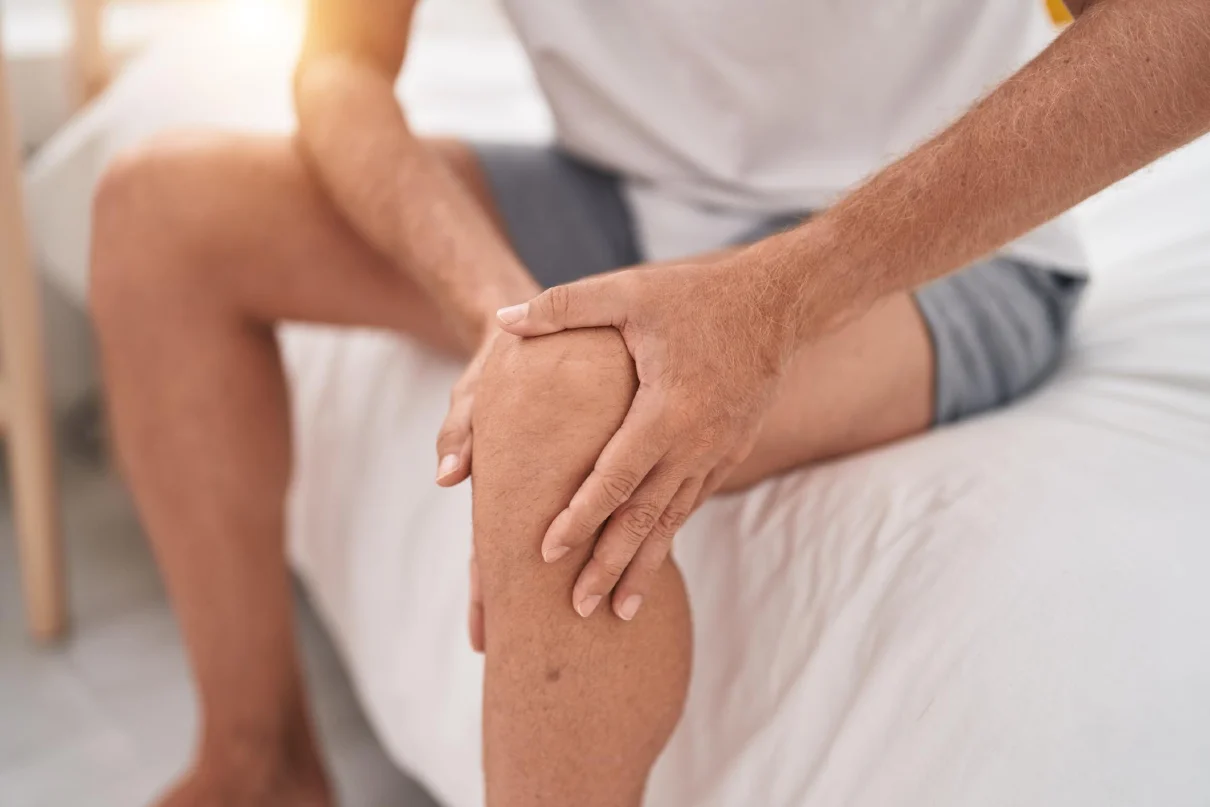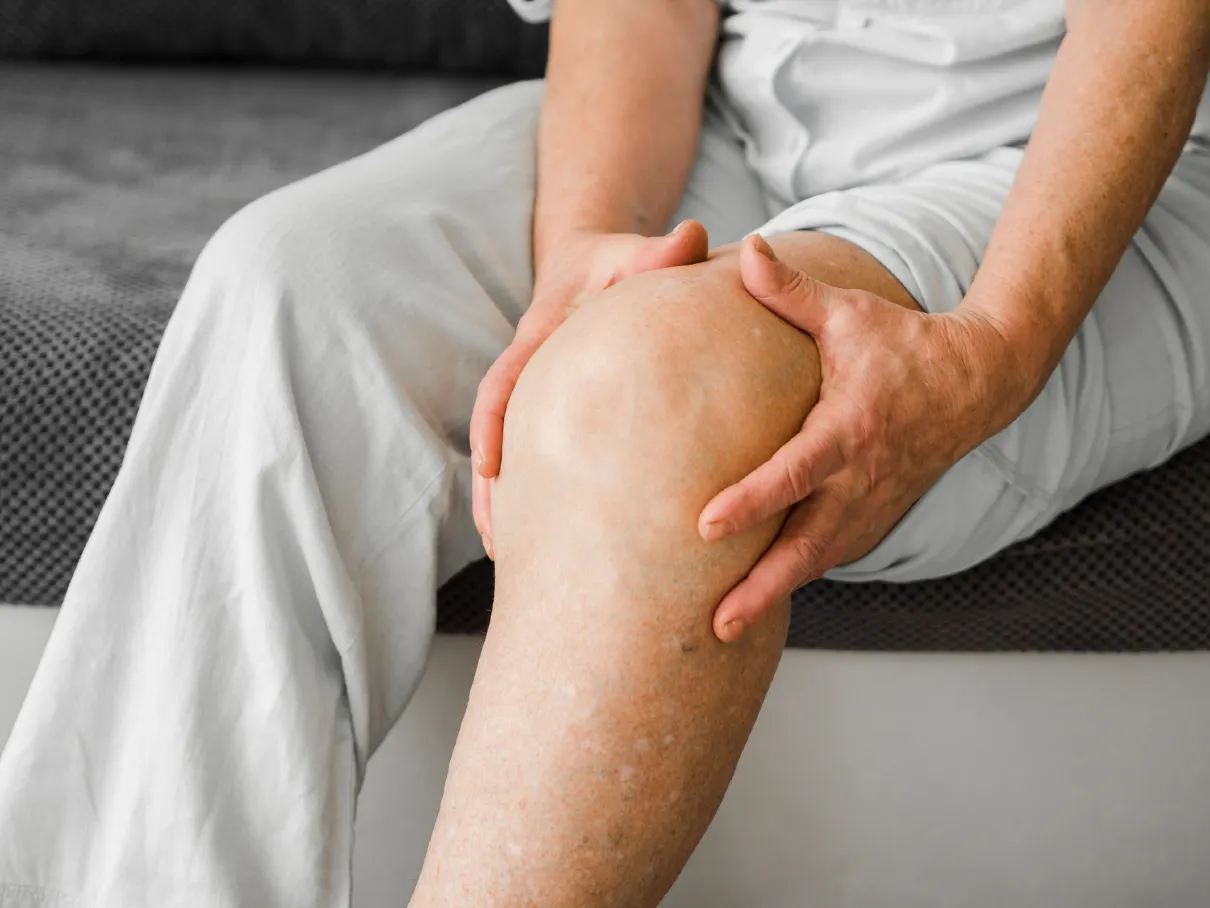Waking up with numb hands can be unsettling—especially when it happens often. Hand numbness in sleep is a common issue, and it usually signals an underlying cause that shouldn’t be ignored. Whether it’s a matter of sleeping posture, nerve compression, or something more serious, identifying the reason is the first step toward relief. In this article, we’ll explore the most common causes of hand numbness in sleep, how to recognize warning signs, and what you can do to sleep more comfortably.
Why Does Hand Numbness Happen During Sleep?
Hand numbness in sleep usually happens because of pressure on nerves or blood vessels caused by the way you position your arm or hand. When you sleep in an awkward position, your nerves can get stretched or compressed for a long time. This pressure slows down nerve signals and reduces blood flow, which causes that pins-and-needles or numb feeling you wake up with.
Additionally, circulation naturally slows down at night, which can make fluid build up in certain parts of your body, adding extra pressure on nerves. Without enough oxygen and nutrients, nerves don’t work properly and start to send those tingling signals.
Because you have fewer distractions during sleep, you notice these sensations more.
Common Causes of Hand Numbness in Sleep
Many factors can cause your hands to go numb while you sleep. Some are simple and easy to fix, like sleeping in a bad position, while others may require medical attention. Understanding these causes will help you identify the problem early and find the right solution.
Carpal Tunnel Syndrome
Carpal tunnel syndrome happens when the median nerve in your wrist gets compressed. This causes numbness, tingling, or pain in your thumb, index, middle finger, and part of the ring finger. Sleeping with bent wrists often worsens these symptoms.
Cubital Tunnel Syndrome
Cubital tunnel syndrome occurs when the ulnar nerve is compressed at the elbow. Sleeping with bent elbows or resting your arm under your head can increase pressure, causing numbness in the ring and little fingers.
Poor Circulation
Poor blood flow can cause numbness in your hands during sleep. Conditions like diabetes or staying in one position for too long reduce circulation, which affects nerve function and causes tingling.
Cervical Radiculopathy
This condition involves nerve irritation or compression near the neck’s spinal roots. It can cause numbness, tingling, or pain in the arms and hands, often worsening at night or with certain neck movements.
Other Causes
Vitamin deficiencies (especially B vitamins) and systemic illnesses like multiple sclerosis can also cause hand numbness during sleep. If numbness is frequent or severe, consult a healthcare professional.
Want to learn more?
If you want a deep dive into the most common conditions that cause hand tingling and numbness, check out our full article:
“Hand Tingling: 7 Common Causes and How to Recognize Them” — where we explore key causes, symptoms to watch for, and the best steps to take for relief.
When to See a Doctor
Tingling in the hands is never something to ignore completely. If it happens just occasionally—maybe once or twice a month—it’s usually not a serious concern. Often, it’s caused by sleeping in a position that puts pressure on a nerve in your arm, leading to temporary numbness or tingling upon waking.
On the other hand, if you notice tingling happening daily or almost every day, it may indicate a more significant problem that requires medical attention. Although hand tingling itself rarely signals a life-threatening condition like a stroke, it’s crucial to pay close attention to your symptoms. Identifying the cause early can help you get the appropriate treatment and prevent further complications.
Diagnosis and Treatment Options
Doctors use a variety of tests and methods to find out what’s causing your hand tingling and numbness. Understanding these options can help you follow your treatment plan better.
How is the cause diagnosed?
The process usually starts with a thorough clinical examination. Your doctor will ask about your symptoms, medical history, and whether one or both hands are affected. They will test your muscle strength, reflexes, and sensation to narrow down the possible causes.
Electromyoneurography (EMNG)
EMNG measures the electrical activity of your muscles and nerves. This test helps detect nerve damage and pinpoint exactly where nerves are compressed or irritated. For example, EMNG is useful for diagnosing carpal tunnel syndrome or cubital tunnel syndrome, by showing how well the median or ulnar nerves work.
Ultrasound
Ultrasound uses sound waves to create images of nerves and surrounding tissues. It can reveal swelling, compression, or structural changes in nerves. This is helpful to visualize nerve entrapments and can complement EMNG findings.
Magnetic Resonance Imaging (MRI)
MRI scans are often used if doctors suspect nerve root compression in the neck, called cervical radiculopathy. MRI provides detailed images of the spine and discs, helping to detect herniated discs or bone spurs pressing on nerves.
Examples of Diagnoses
- If symptoms affect one hand, carpal tunnel syndrome is a common cause.
- If both hands are numb, doctors might check for diabetic polyneuropathy, a nerve damage caused by long-term high blood sugar.
- Patients who underwent chemotherapy may develop chemotherapy-induced neuropathy, which can cause tingling and numbness in hands and feet.
Treatment Options
Most cases start with conservative treatments. These include physical therapy, exercises to improve nerve function and strength, and lifestyle changes like avoiding repetitive wrist movements or improving posture.
Doctors may also recommend splints to keep your wrist or elbow in a neutral position during sleep, reducing nerve pressure.
Medications such as anti-inflammatory drugs, pain relievers, or specific nerve pain medications (like anticonvulsants or antidepressants) can help reduce symptoms.
In more severe or persistent cases, surgery might be necessary to relieve nerve compression and prevent further damage. For example, carpal tunnel release surgery or ulnar nerve decompression can significantly improve symptoms.
If you experience persistent or worsening numbness, early diagnosis and treatment are essential to protect nerve health and improve quality of life.
Tips to Prevent Hand Numbness in Sleep
Maintain Proper Posture and Sleep Position
Keeping a good posture throughout the day and choosing the right sleeping position can greatly reduce pressure on your nerves. Avoid sleeping with your wrists bent or your arms under your head. Try to keep your arms relaxed by your sides or use a supportive pillow to keep them straight.
Exercises to Improve Circulation and Strengthen Muscles
Regular stretching and gentle exercises help improve blood flow and keep muscles strong, reducing the risk of nerve compression. Simple wrist stretches, hand squeezes, and shoulder rolls can make a difference. Incorporate these exercises into your daily routine, especially if you spend long hours at a desk.
Avoid Repetitive Movements and Overloading Your Hands
Repetitive tasks like typing or using tools can strain your nerves and muscles. Take frequent breaks to rest your hands, and try to vary your movements throughout the day. Using ergonomic tools and adjusting your workspace can also reduce unnecessary strain.
Other Useful Recommendations
- Use wrist splints at night to keep your wrists in a neutral position.
- Keep your hands warm, especially in cold weather, to prevent blood vessel constriction.
- Stay hydrated and maintain a balanced diet rich in vitamins that support nerve health, like B vitamins.
- Manage stress effectively, as muscle tension can worsen nerve compression.
Conclusion
Hand numbness in sleep can have many causes, ranging from simple temporary pressure on nerves to more serious medical conditions. Understanding the common triggers and early symptoms helps you take control of your health. Remember, experiencing occasional tingling is usually not alarming, but persistent or worsening symptoms deserve prompt medical attention.
Don’t ignore your body’s signals. If you notice frequent or increasing numbness in your hands, consult a healthcare professional as soon as possible. Early diagnosis and treatment can prevent complications and improve your quality of life.
Roth Bettlach CL, Hasak JM, Krauss EM, Yu JL, Skolnick GB, Bodway GN, Kahn LC, Mackinnon SE. Preferences in Sleep Position Correlate With Nighttime Paresthesias in Healthy People Without Carpal Tunnel Syndrome. Hand (N Y). 2019 Mar;14(2):163-171. doi: 10.1177/1558944717735942. Epub 2017 Oct 11. PMID: 29020829; PMCID: PMC6436122. https://journals.sagepub.com/doi/10.1177/1558944717735942
Patel JN, McCabe SJ, Myers J. Characteristics of sleep disturbance in patients with carpal tunnel syndrome. Hand (N Y). 2012 Mar;7(1):55-8. doi: 10.1007/s11552-011-9373-1. Epub 2011 Nov 15. PMID: 23449036; PMCID: PMC3280366. https://link.springer.com/article/10.1007/s11552-011-9373-1
Sharrak S, Das JM. Hand Nerve Compression Syndromes. [Updated 2023 Aug 8]. In: StatPearls [Internet]. Treasure Island (FL): StatPearls Publishing; 2025 Jan-. Available from: https://www.ncbi.nlm.nih.gov/books/NBK547683/
Bettlach CR, Yu J, Hasak J, Bodway G, Mackinnon S. Abstract: Side Sleeping Position is Associated with Less Frequent Nighttime Numbness and Tingling. Plast Reconstr Surg Glob Open. 2016 Sep 16;4(9 Suppl):123-124. doi: 10.1097/01.GOX.0000503043.97116.f6. PMCID: PMC5147211. https://journals.lww.com/prsgo/fulltext/2016/09001/side_sleeping_position_is_associated_with_less.123.aspx














